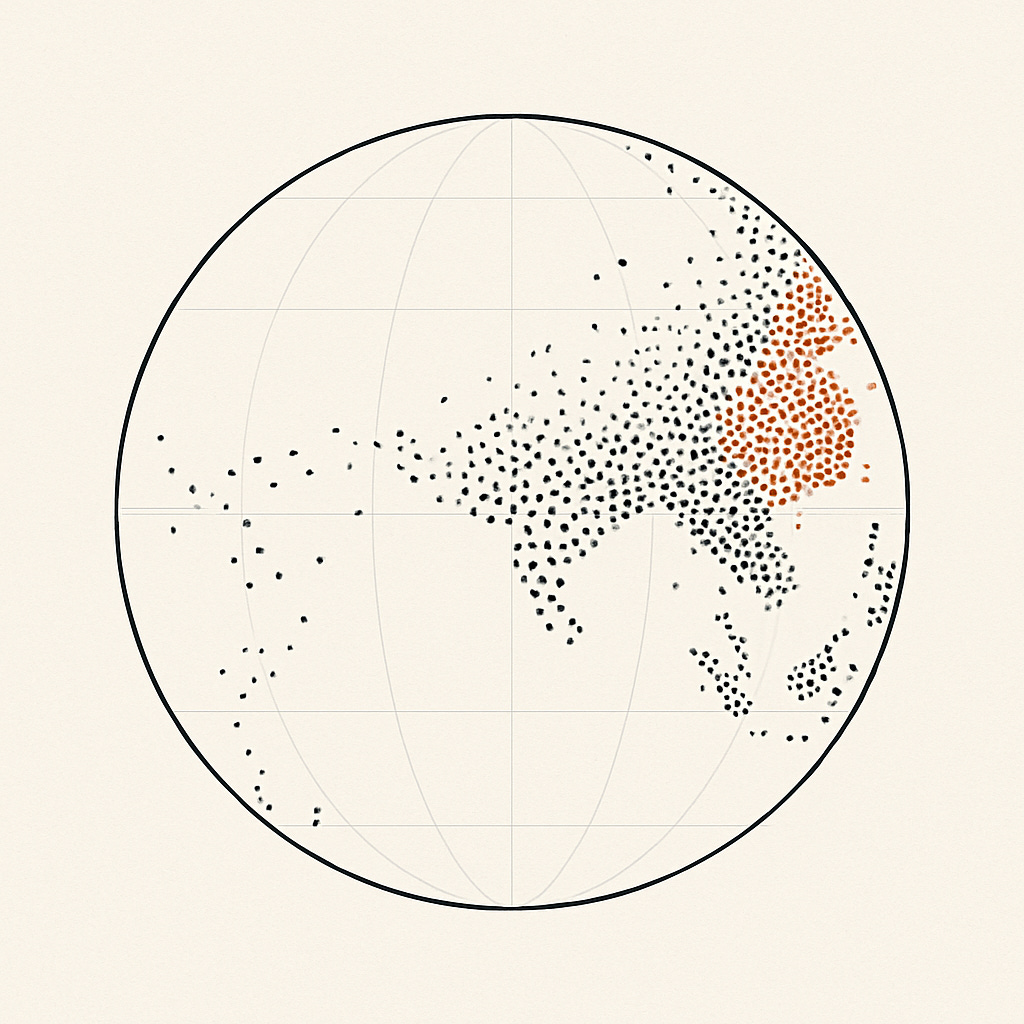“…something I keep thinking about and which I can't make up my mind on is: were swathes of the right, centre-right and, in some cases, the centre, full of racists hiding their beliefs for decades, or are these people all incredibly suggestible? neither answer is good” wrote Marie Le Conte on Bluesky this week.
It’s a good question.
I've been puzzled and intrigued by why the white working class, in Western countries continues to swing to the right, and in an increasingly racial exclusionary way.
While this phenomenon is likely multi-causal, one obvious explanation remains the economic deprivation in many areas where white voters initially supported far-right parties—regions that have become even more economically disadvantaged over the past 30 years as Western countries have de-industrialized due to globalisation.
In the US, data shows this effect has been significant in particular areas, though overall the so-called "China shock" hasn't been as impactful as technology in affecting job prospects.
The situation varies across countries. Travel through East Germany today, for instance, and it's visibly much better off than poorer parts of the UK. So Germany doesn't have such a stark gap between rich and poor, which suggests we're really talking about relative differences—and perhaps perceived differences in status: East Germany is very aware it is not as wealthy as the West, and that it is where it is, in part, because of subsidies from West Germany.
Nevertheless, both the perceived and real relative decline in the economic status of the white working class in the West has played a significant role.
What else might be at play? Branko Milanovic offers a compelling framework, arguing that it's Marxism 101: when the economic base changes, so does ideology. As he puts it: "One has to realize that the world population was 5.3 billion in 1990; it is now, 8.2 billion. China produced 7.2% of the global GDP; now it produces 22%. India produced 3.5% of the global GDP; now, it produces 9%. As the underlying reality changed, so did ideology."
Marx might have said, “the material base of society has shifted from West to East. As the means of production expand and relocate—in this case, to China and India—so too does the ideological superstructure adapt to justify, obscure, or resist these changes.” While Milanovic doesn't specify exactly what these ideological effects might be, I can guess at some possibilities.
One is that many successful or perceived-to-be-successful Asian countries—Korea, Japan, and especially China, with India increasingly following suit—have long advanced not a multicultural vision, but rather a single cultural and even ethnic idea of what society should be. This stands in contrast to the liberal multicultural position that places like the USA or UK have claimed since WWII.
A striking illustration of this is the infamous Kising interview with the ex editor of the Spectator. Kisin claimed Rishi Sunak isn’t English, pointing at Japan. It’s hard to imagine that many working class folks walk around with Asian conceptions of ethnic identity top of mind, but it is possible to imagine that in the future, if this region continues to dominate, and if multi-cultural societies languish economically, it will. Silicon Valley's fantasies about countries being run by CEOs instead of democratically are undoubtedly already influenced by places like Singapore.
Social psychology offers another lens through which to understand this shift. Research on status threat and relative deprivation shows that people react strongly not to absolute losses but to perceived declines in their group's standing. In the past, if you were part of the white working class in Western countries, you might not have been as well off as your more affluent compatriots, but you were still part of nations perceived to be more successful and higher in the global pecking order.
You could afford holidays in other parts of the world. Your currency went further when you went on holiday. Foreigners looked up to you. That's increasingly no longer true. The relative status of people has changed, and I think this shift in standing vis-à-vis the rest of the world—this perceived loss of global position—could be, if not fueling resentment, making people far less accommodating toward others.
Of course, other things are playing a role too. No doubt social media and its ability to bypass gatekeepers, something the left thought would be a good thing, is. I discussed that here. And the fact that we are hard wired to engage with certain kinds of content. And engagement is what drives social media distribution. I discussed that here.
And sociologists have long known that most of us don't make up our ideas on our own. We are social animals and take our cues from others in our social network. When enough people in our circles change their minds, it can reach a tipping point that has much larger effects. And that's—scary.
Perhaps Le Conte's question has an answer that encompasses both possibilities: people weren't necessarily hiding their beliefs, yet they are suggestible. Instead, the material conditions of their world have fundamentally shifted, and with them, the ideological frameworks and psychology through which they understand their place in it.





And to think that globalization was not some kind of externally generated storm, it was initiated and flourished because “western” nations profoundly benefited from it. Enormous profits and riches were made because of cheap labor in “eastern” nations. Relative prices of electronics, clothes… all went down. This largesse had to end one way or another with the rising class of plutocrats or elite (Milanovic’s term) as the outcome. Time to reap the rewards of greed!
Geat piece! my sense is that shift to the right is related to the aging populations in the West and an increasingly defensive, “safety first” attitude, while younger countries feed of hope and focus on the future not nostalgia? Older folks feel alienated by rapid tech development and following that, their loss of status that Elders claimed before?